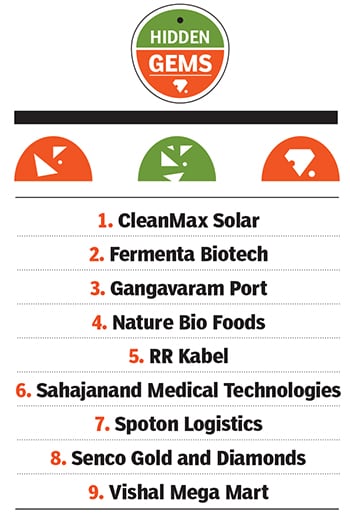Forbes India Hidden Gems 2019: The nine companies that made the list
Forbes India's Hidden Gems features Indian companies that have already tasted a degree of success, and are now poised for bigger things


 Image: Shutterstock[br] Successful companies are hard to define. Merely looking at metrics, data and statistics can provide a staid, bogged-down view.
Image: Shutterstock[br] Successful companies are hard to define. Merely looking at metrics, data and statistics can provide a staid, bogged-down view.
But told through stories, successful companies come alive as ones that do things differently, take enormous risks and pulsate with sheer energy. Those who lead them are often mavericks who display courage and daring, unabashed ambition and a hardiness that comes with experience. Importantly, they’re able to rally people about a vision and execute it.
Forbes India’s annual collection of such companies—the Hidden Gems—is out. True to our theme, these are businesses you may not recognise, primarily because they’re unlisted. Furthermore, they have revenues of at least ₹200 crore, operational profits and private equity backing (where available we used FY19 data, else we used FY18 figures).We cast a wide net to fish out such companies. Venture Intelligence, a Chennai-based research service focussed on private company financials, provided us with a list of around 100 companies that met our quantitative criteria. Forbes India’s reporters pitched in with suggestions based on primary and secondary research. Finally, our editorial team whittled the long list down to nine.The stories that follow help define what makes (and what it takes to be) a successful company. Consider Mumbai-based Fermenta Biotech. It claims to be the only company in India, and one of the top companies globally, to manufacture Vitamin D3—a complex process that involves extracting cholesterol from sheep’s wool. Or hypermarket chain Vishal Mega Mart that scripted a dramatic turnaround from a bleeding entity to one that streamlined its operations eventually it was bought out for a staggering ₹5,000 crore. Even Bengaluru-based Spoton that competes in the hot-but-crowded logistics sector overcame mighty losses to reel in big wins.
Then there’s Gangavaram Port in Vishakhapatnam that, at 21 metres, is India’s deepest all-weather port. Proximity to the hinterland, better infrastructure and efficient management have helped the DVS Raju-controlled port attract significant investor interest. An organic food maker, a wire and cable manufacturer, and a solar power company are also featured. Besides, if we are to have an Indian-made cardiac stent command the global market, Surat-based Sahajanand Medical Technologies will be the reason why.
First Published: Aug 16, 2019, 12:19
Subscribe Now